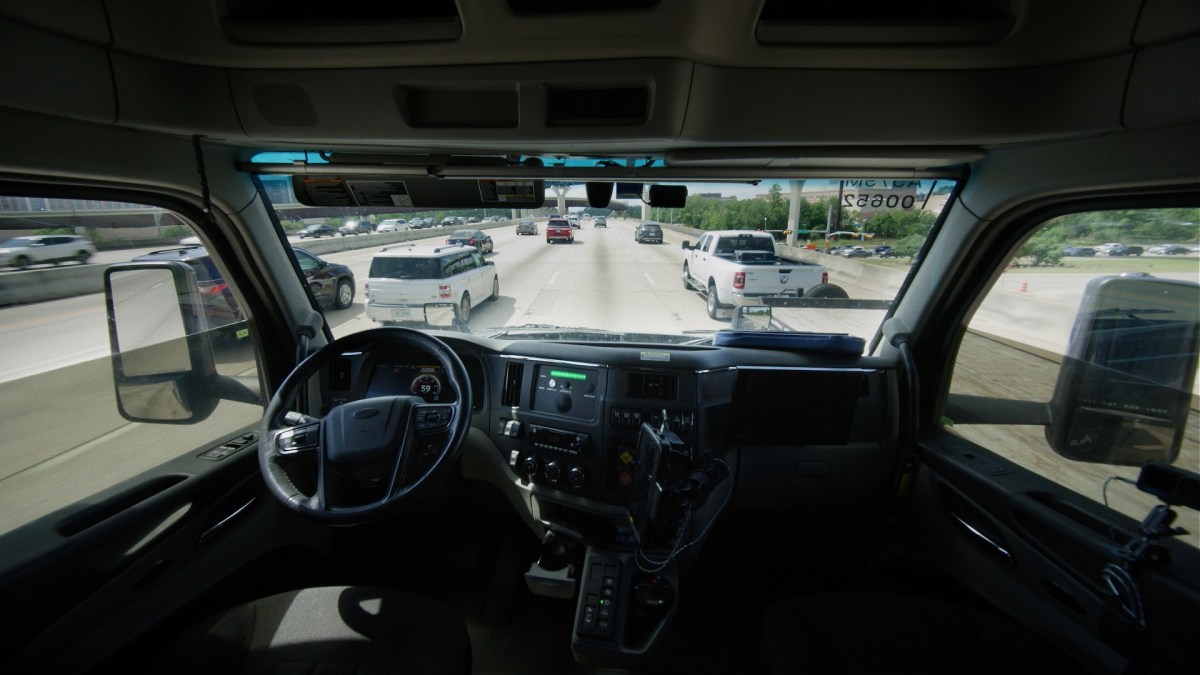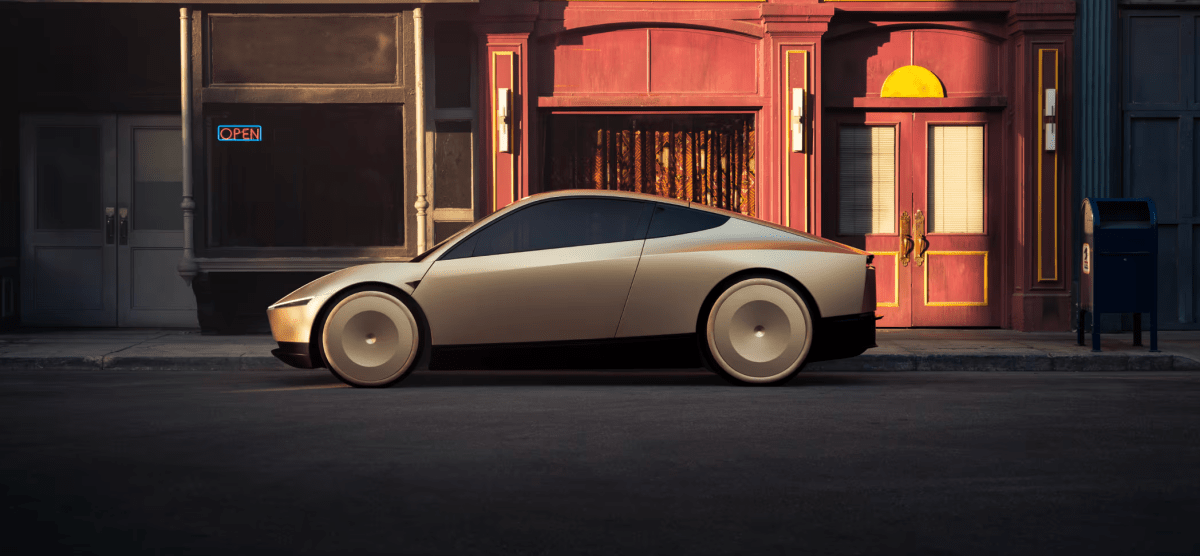

Autonomous vehicle technology company Aurora Innovation plans to expand on the success of its first driverless commercial launch and add night driving to its operations.
Aurora said Thursday that in the second half of 2025, it will start sending its self-driving trucks out at night and during adverse weather conditions like rain or heavy wind. The company, which provided the update in its first-quarter shareholder letter, also plans to expand its driverless trucking route beyond Dallas to Houston, and into El Paso and Phoenix.
“We’d like to have a high return on asset for every truck that we have, and so we’ll try to drive efficiency to get as many miles on as many trucks as fast as possible,” Aurora CFO Dave Maday said Thursday during the company’s first-quarter earnings call. “We should be able to double our drive time as soon as we unlock night. And that’s our next key milestone.”
Aurora already runs freight with self-driving trucks in those conditions, but with a human safety operator behind the wheel. The company said it has completed more than 4,000 miles in a single self-driving truck without a driver running freight for its launch customers Hirschbach Motor Lines and Uber Freight.
In the week since Aurora’s commercial launch, the company has already expanded to two driverless trucks operating on a daily basis and says it expects to operate “tens of trucks” by the end of 2025.
The milestone and future plans come alongside another major shift at the company: the resignation of co-founder and chief product officer Sterling Anderson.
Aurora shared new details Thursday in its first-quarter shareholder letter about plans to grow its autonomous freight service, signaling it will offer more specific timelines for key milestones as it expands.
Techcrunch event
Berkeley, CA
|
June 5
Aurora realized $871,000 in pilot revenue from its drivered commercial freight runs, which was up 22% on a quarterly basis and 54% compared to the same time last year, per Maday.
“At commercial launch, we will begin recognizing revenue,” he said Thursday during Aurora’s first-quarter earnings call. “This will include driverless revenue, as well as continued pilot revenue … With our deliberate approach to launch, we expect our 2025 revenue to be modest, in the mid-single-digit millions. For modeling purposes, we expect revenue to build sequentially throughout the year.”
The company reported $211 million in operating expenses, including $153 million for R&D. It used $142 million in operating cash and $8 million in capex in the first quarter, ending with nearly $1.2 billion in cash and short-term investments. Aurora expects to spend $175 million to $185 million per quarter for the rest of this year.
In the short-term, Aurora plans to own, operate, maintain, and insure its own trucks — made available on the Uber Freight network — for customers. The company is working with partners Paccar and Volvo Trucks to build self-driving trucks at scale. Starting in 2027 or earlier, Aurora expects customers to buy those trucks directly from manufacturers so it can shift to a driver-as-a-service model and achieve “high gross margins,” per Maday.
This article was updated with more information about Aurora’s recorded revenue and the company’s next milestones.
Keep reading the article on Tech Crunch

Tesla’s attempt to trademark the term “Robotaxi” in reference to its vehicles has been refused by the U.S. Patent and Trademark Office for being too generic, according to a new filing. Another application by Tesla to trademark the term “Robotaxi” for its upcoming ride-hailing service is still under examination by the office.
In addition, applications from Tesla for the trademark on the term “Cybercab” have been halted due to other companies pursuing similar “Cyber” trademarks. That includes one company that has applied for numerous trademarks related to aftermarket Cybertruck accessories.
The USPTO issued Tuesday what’s known as a “nonfinal office action” on the “Robotaxi” trademark application, which means Tesla has three months to file a response or the office will abandon the application. A trademark lawyer representing Tesla did not immediately respond to a request for comment.
Tesla applied for the trademarks in October 2024 on the same day that it revealed the Cybercab, the purpose-built electric car that it hopes to one day use in its planned autonomous ride-hailing service. Tesla also submitted two similar trademark applications October 10 for the term “Robobus,” which are still under examination.
The trademark that was refused was assigned to a USPTO examiner on April 14. Tesla said it would use the word in reference to “[l]and vehicles; electric vehicles, namely automobiles; automobiles; and structural parts therefor,” according to the original application.
While the USPTO examiner found there were no conflicting trademarks in existence, it refused the application because it was “merely descriptive.” The examiner wrote that the term “Robotaxi” is “used to describe similar goods and services by other companies.”
“[S]uch wording appears to be generic in the context of applicant’s goods and/or services,” the examiner wrote.
Techcrunch event
Berkeley, CA
|
June 5
Tesla will be allowed to submit evidence and arguments to support its argument in favor of the trademark. If it does, the USPTO wants Tesla to provide “[f]act sheets, instruction manuals, brochures, advertisements and pertinent screenshots of applicant’s website as it relates to the goods and/or services in the application, including any materials using the terms in the applied-for mark.”
In other words, Tesla needs to give the agency specific plans for how and why it deserves the “Robotaxi” trademark.
The examiner also wrote that Tesla will need to tell the USPTO if “competitors” use the terms “ROBO, ROBOT, or ROBOTIC to advertise similar goods and/or services.”
Tesla’s other application for the “Robotaxi” trademark would cover the use of the word when offering transportation services, including “coordinating travel arrangements for individuals and for groups,” “arranging time-based ridesharing services,” and offering vehicle sharing or rentals. That application was also assigned to a USPTO examiner on April 14, but no decision has been filed.
This story has been updated to include information about the “Cybercab” trademark applications.
Keep reading the article on Tech Crunch